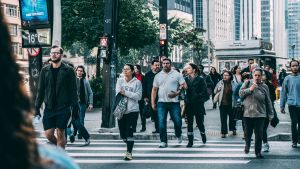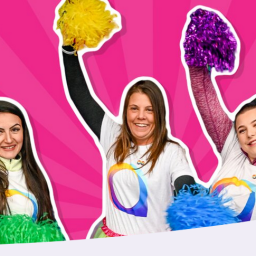 Neurodiversity Celebration Week is a global movement, created to challenge stereotypes and misconceptions about neurological differences. From 18th to 24th March 2024, schools, universities, and organisations in the UK and around the world unite to honour the unique experiences and perspectives of neurodivergent individuals. This annual initiative not only raises awareness but also advocates for more inclusive and equitable environments where every individual is celebrated and empowered.
Neurodiversity Celebration Week is a global movement, created to challenge stereotypes and misconceptions about neurological differences. From 18th to 24th March 2024, schools, universities, and organisations in the UK and around the world unite to honour the unique experiences and perspectives of neurodivergent individuals. This annual initiative not only raises awareness but also advocates for more inclusive and equitable environments where every individual is celebrated and empowered.
Around 15-20% of all the people living in the world are thought to have a neuro-difference. In the UK, it is estimated that 1 in 7 people are neurodivergent, which is over 15%. Neurodivergence encompasses a range of conditions, including autism, ADHD, dyslexia, dyspraxia, OCD, Tourettes, Bipolar, BPD and PTSD/CPTSD. The umbrella of neurodivergence spreads widely, harbouring under it many different conditions that cause a person to perceive and respond to the world differently than their neurotypical peers. Neurodiversity Celebration Week aims to both demystify and destigmatise neurodivergence, as well as highlighting some of the strengths and advantages that neurodivergent individuals bring to society.
There are many of famous people who have neuro-differences, including Lewis Capaldi, who has been raising awareness about his experience with Tourette’s.
Research conducted by the University of Birmingham sheds light on the wide range of experiences of neurodiversity among adults in the UK. Led by Professor Ian Apperly, this study delved into the traits associated with various neurodevelopmental conditions, providing valuable insights into the complexity of neurodivergence. While certain characteristics, such as challenges in social interactions and attention deficits, are prevalent across neurodivergent individuals, the study also revealed overlaps and unique features specific to each condition.
Understanding these nuances is essential for providing effective support and interventions for neurodivergent individuals. One such intervention gaining recognition is hypnotherapy, endorsed by the National Council for Hypnotherapy. Hypnotherapy offers a holistic approach to addressing the needs of neurodiverse populations, focusing on relaxation, emotional regulation, and affirming support.
 A trained hypnotherapist can support a neurodivergent individual to learn necessary self regulation and relaxation techniques. this can have a follow on effect by supporting emotional regulation and better interoception. Hypnosis can equip neurodivergent individuals with the tools to manage anxiety, allowing them to communicate more effectively. By reducing anxiety and fostering relaxation, hypnosis creates an environment conducive to improved communication. Hypnotherapists who have additional training can also assist individuals in developing communication skills, from interpreting social cues to expressing themselves more clearly, thereby enhancing social interaction and understanding within a neuro affirming framework.
A trained hypnotherapist can support a neurodivergent individual to learn necessary self regulation and relaxation techniques. this can have a follow on effect by supporting emotional regulation and better interoception. Hypnosis can equip neurodivergent individuals with the tools to manage anxiety, allowing them to communicate more effectively. By reducing anxiety and fostering relaxation, hypnosis creates an environment conducive to improved communication. Hypnotherapists who have additional training can also assist individuals in developing communication skills, from interpreting social cues to expressing themselves more clearly, thereby enhancing social interaction and understanding within a neuro affirming framework.
Furthermore, hypnotherapy can address specific symptoms experienced by neurodivergent individuals, such as insomnia. By promoting relaxation and alleviating anxiety, hypnotherapy aids in achieving better sleep quality, offering relief from a common issue within the neurodiverse community.
As we observe Neurodiversity Celebration Week it is important to note that neurodivergent individuals are more likely to require mental health support than their neurotypical peers. If you, or someone close to you, required additional, neuro-affirming support, it can be found on the National Council for Hypnotherapy’s therapist finder.



